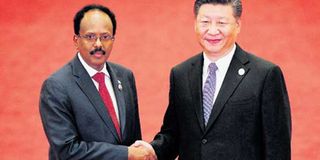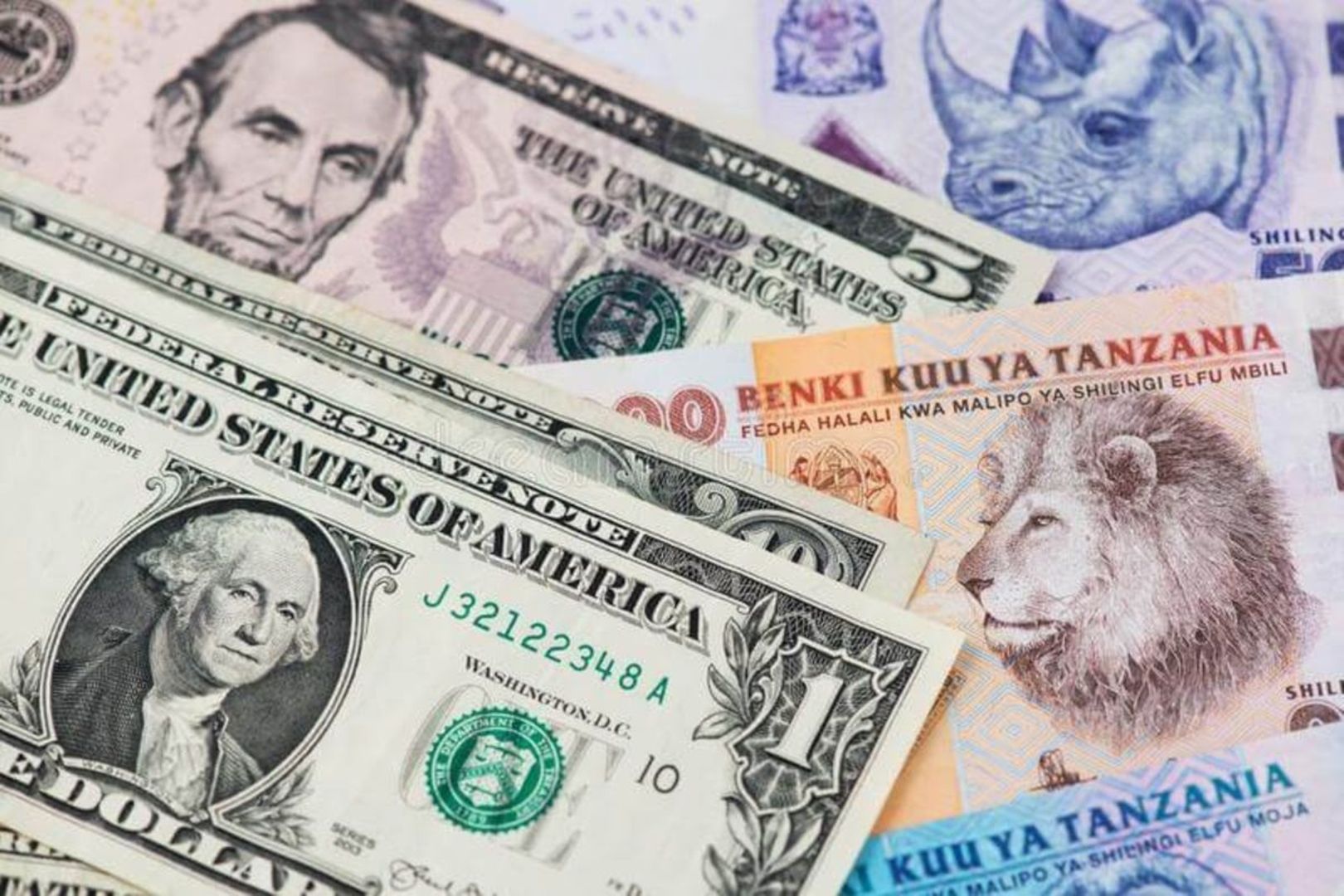Wind of change opens Somalia for business

Somalia's President Mohamed Abdullahi Mohamed (L) shakes hands with China's President Xi Jinping during the Forum on China-Africa Cooperation at the Great Hall of the People in Beijing on September 3, 2018.
President Xi Jinping told African leaders on September 3 that China's investments on the continent have "no political strings attached", pledging $60 billion in new development financing, even as Beijing is increasingly criticised over its debt-heavy projects abroad. / AFP PHOTO / POOL / Andy Wong
What you need to know:
- A few days ago, Eritrea and Djibouti agreed to normalise their ties, opening a new chapter in their previously frosty relations.
The recent amnesty has seen leaders of many terrorist groups defect to the government and help in nation building
A few days ago, Eritrea and Djibouti agreed to normalise their ties, opening a new chapter in their previously frosty relations.
This followed yet another milestone: a summit in Asmara that brought together the leaders of Somalia, Ethiopia and Eritrea in an effort to broker peace.
The meeting shows the resolve of Somalia to put regional peace and stability as the cornerstone of our diplomacy. Leaders have agreed to break from a conflict-riddled past.
Since President Mohamed Abdullahi Farmajo and I took office, the government has made tremendous progress at home and abroad.
Our government, through Foreign Minister Ahmed Isse Awad, is spearheading talks to end a border row between Eritrea and Djibouti.
The Asmara talks were meant to solidify the gains made in separate talks between the leaders of the three countries.
Djibouti Foreign Minister Mahamoud Ali Youssouf and his Eritrean counterpart Osman Saleh have saluted Somalia’s efforts.
For decades, the two nations have had a dispute over the region of Doumeira. Several initiatives to end the hostilities have been futile. In 2010, Qatar made laudable efforts to broker a peace deal.
The latest development is just among the diplomatic engagements Somalia has undertaken.
Two months ago, President Farmajo reached out to Ethiopian PM Abiy Ahmed. They confounded political allies and naysayers, but have solidified the cordial relations between our nations.
The Asmara talks herald a new diplomacy dawn. Somalia is increasingly aiming to reclaim its place in the community of prosperous nations. We endeavour to play a crucial role in global peace and security.
Next year, Somalia will assume the chairmanship of the Arab Foreign Ministers Council, allowing us to host the council session in 2019 in Mogadishu and informing the world that we are ready for business.
Our government aims to seize the wind of change blowing across the Horn of Africa to advance its security interests and help find solutions to African problems.
In Asmara, we signalled the direction we are steering our diplomacy as a peaceful nation in a stable region.
Our quest for success abroad is informed by gains at home, especially on the security front.
Terrorists that turned our country into a haven are on the back foot. Somalia owes a huge debt to our neighbours, including Kenya, for helping fight terrorism.
Our government has declared amnesty, which has seen leaders of terrorist organisations join us to rebuild the nation. The diaspora has moved in with significant investments.
Ours is a functioning government. We have paid civil servants and our security forces are motivated to work hard.
We have also restored good relations with the global community. The International Monetary Fund has hailed reforms in our revenue generation.
In the first quarter of 2018, the government raised $42.5 million domestically, the highest ever in a single quarter. We are firmly on the path to debt relief.
The government’s watchword is accountability, with unrelenting fight against corruption.
Somalia is in a position to tap into its resources for the benefit of its people.




